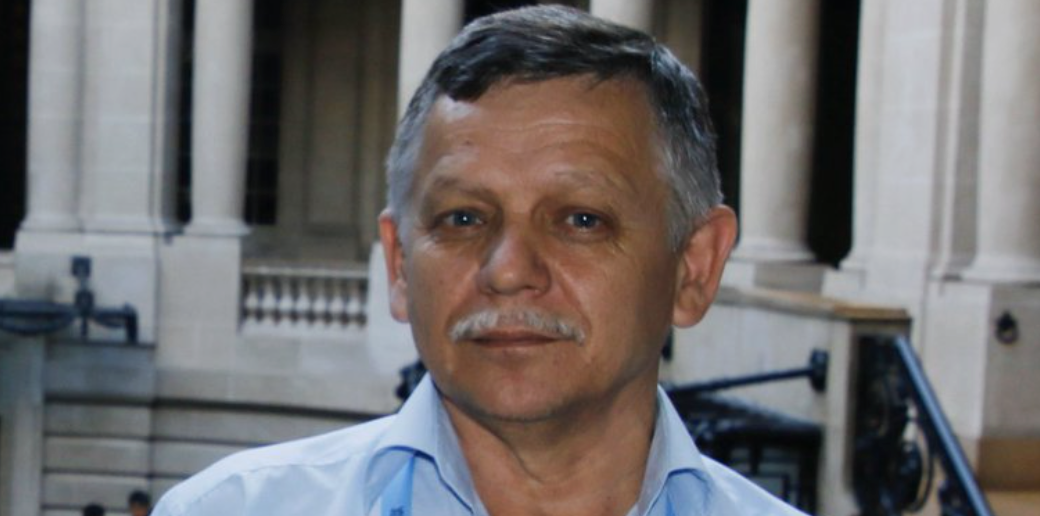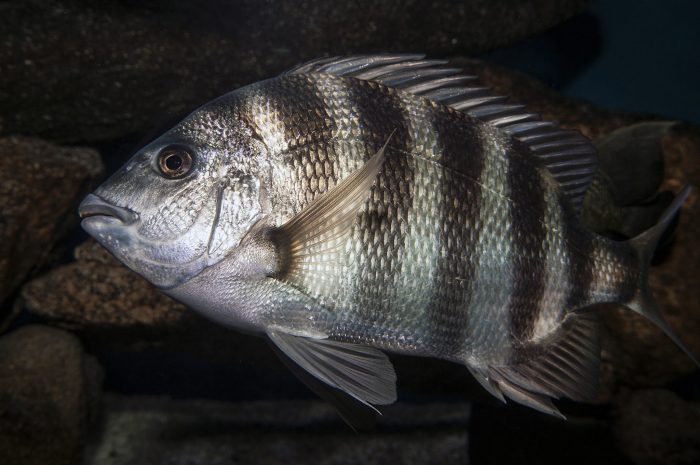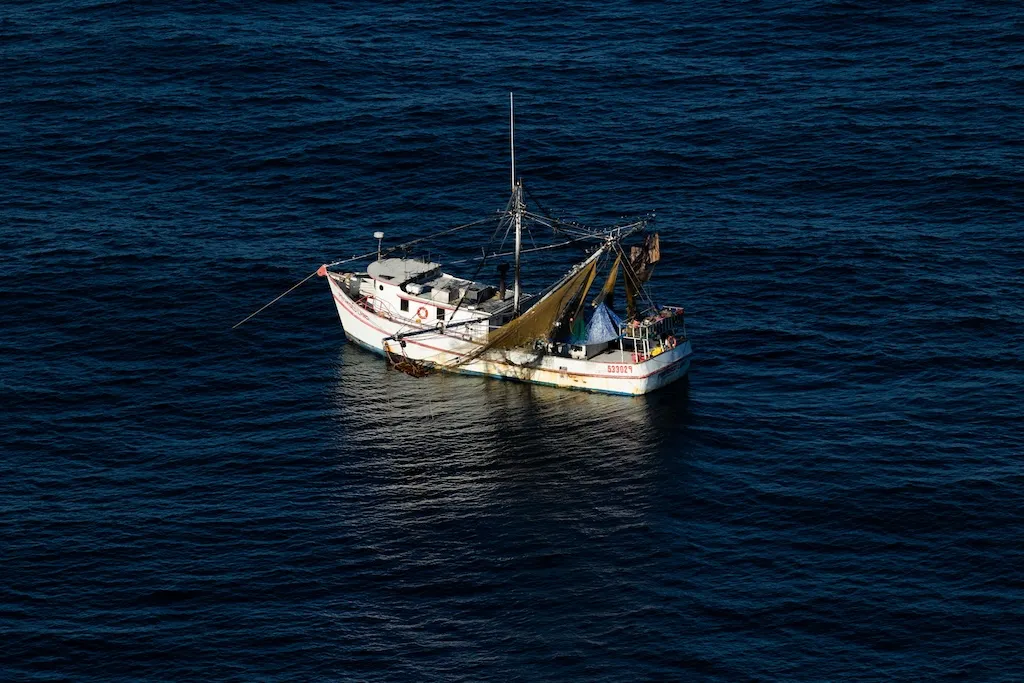Report on the Detention of Leonid Pshenychnov and its Implications for Sustainable Development Goals
Executive Summary
- In September, Ukrainian scientist Leonid Pshenychnov was detained by Russian authorities in occupied Kerch, Crimea.
- This action directly undermines international efforts related to several Sustainable Development Goals (SDGs), particularly SDG 14 (Life Below Water), SDG 16 (Peace, Justice and Strong Institutions), and SDG 17 (Partnerships for the Goals).
- The Australian Federation of Ukrainian Organisations (AFUO) has condemned the detention, which prevents the scientist from representing Ukraine at the Convention for the Conservation of Antarctic Marine Living Resources (CCAMLR), and has called for his immediate release.
Impact on SDG 14: Life Below Water
Leonid Pshenychnov’s four-decade career has been dedicated to Antarctic research and the protection of marine ecosystems, directly supporting the objectives of SDG 14. His detention obstructs critical work on marine conservation.
- Career Focus: Over 40 years of research dedicated to the conservation of Antarctic marine ecosystems.
- Key Contributions to SDG 14 Targets:
- Development of environmental standards for the conservation of marine living resources.
- Establishment of protections for krill, seabirds, and marine mammals, contributing to the sustainable management of marine ecosystems (Target 14.2).
- Co-authoring an initiative to establish a new marine protected area near the Antarctic Peninsula (Target 14.5).
- Coordinating scientific monitoring of industrial fishing vessels to ensure sustainable practices (Target 14.4).
Violation of SDG 16: Peace, Justice and Strong Institutions
The detention represents a significant breach of international norms and human rights, directly contravening the principles of SDG 16.
- The AFUO has described the arrest as a “blatant violation of human rights,” undermining efforts to promote just, peaceful, and inclusive societies (Target 16.3).
- The official accusation of “posing a threat to Russia’s security” for participating in international scientific forums as a Ukrainian representative challenges the rule of law and strong international institutions.
- According to Yevhen Dykyi, Director of the National Antarctic Scientific Center, Pshenychnov has become the world’s first “political prisoner of Antarctica” for opposing predatory environmental policies.
Setback for SDG 17: Partnerships for the Goals
The action is a direct assault on the global scientific collaboration required to achieve the Sustainable Development Goals, as outlined in SDG 17.
- The detention is viewed as an “attempt to silence Ukraine’s voice in global scientific collaboration,” weakening the global partnership for sustainable development (Target 17.16).
- Pshenychnov was scheduled to present Ukraine’s position on protecting Southern Ocean ecosystems at the CCAMLR conference, an essential function of international scientific cooperation.
- His absence disrupts the multilateral partnerships necessary for effective environmental policy and conservation.
Humanitarian Concerns and SDG 3: Good Health and Well-being
The scientist’s personal circumstances raise urgent humanitarian issues related to SDG 3.
- Leonid Pshenychnov is 70 years old and has existing health issues.
- The National Antarctic Scientific Center has warned that any delay in his release could be critical, posing a direct threat to his health and well-being.
Conclusion and International Appeal
- The AFUO and Ukraine’s National Antarctic Scientific Center assert that “Science is not a crime” and have called for the immediate and unconditional release of Leonid Pshenychnov.
- An appeal has been issued to the international scientific and conservation community to defend the researcher and demand his freedom.
- This case highlights the inextricable link between human rights, international scientific partnership, and the successful implementation of the global Sustainable Development Goals.
Analysis of Sustainable Development Goals in the Article
1. Which SDGs are addressed or connected to the issues highlighted in the article?
-
SDG 14: Life Below Water
- The article’s central theme is the work of Ukrainian scientist Leonid Pshenychnov, who has “dedicated over 40 years to Antarctic research and the protection of its marine ecosystems.” His efforts directly contribute to the conservation and sustainable use of the oceans and marine resources.
-
SDG 16: Peace, Justice and Strong Institutions
- The article highlights the scientist’s detention, which is described as a “blatant violation of human rights” and an act that made him the “world’s first ‘political prisoner of Antarctica’.” This directly addresses the need for justice, the rule of law, and the protection of fundamental freedoms.
-
SDG 17: Partnerships for the Goals
- The scientist’s work is framed within the context of international cooperation. He represented Ukraine at the “Convention for the Conservation of Antarctic Marine Living Resources (CCAMLR)” and was scheduled to present at a conference in Australia. His arrest is described as an “attempt to silence Ukraine’s voice in global scientific collaboration,” which undermines the partnerships necessary for achieving sustainable development.
2. What specific targets under those SDGs can be identified based on the article’s content?
-
Under SDG 14 (Life Below Water):
- Target 14.2: By 2020, sustainably manage and protect marine and coastal ecosystems to avoid significant adverse impacts. The article states Pshenychnov’s work involved helping “develop environmental standards, including protections for krill, seabirds, and marine mammals” and presenting “Ukraine’s position on protecting Southern Ocean ecosystems.”
- Target 14.5: By 2020, conserve at least 10 per cent of coastal and marine areas. The article explicitly mentions that he “was one of the authors of an initiative to establish a new marine protected area near the Antarctic Peninsula.”
- Target 14.a: Increase scientific knowledge, develop research capacity and transfer marine technology. Pshenychnov’s “over 40 years to Antarctic research” and his role in “scientific monitoring of Ukraine’s industrial fishing vessels” directly align with this target.
-
Under SDG 16 (Peace, Justice and Strong Institutions):
- Target 16.3: Promote the rule of law at the national and international levels and ensure equal access to justice for all. The scientist’s detention, based on the accusation of “posing a threat to Russia’s security” due to his participation in international forums,” is presented as an arbitrary arrest and a violation of justice and human rights.
-
Under SDG 17 (Partnerships for the Goals):
- Target 17.16: Enhance the Global Partnership for Sustainable Development, complemented by multi-stakeholder partnerships. The CCAMLR is a clear example of such a partnership. Pshenychnov’s role as a representative and the international call for his release by the AFUO underscore the importance of these global collaborations.
3. Are there any indicators mentioned or implied in the article that can be used to measure progress towards the identified targets?
-
Indicators for SDG 14:
- The “initiative to establish a new marine protected area near the Antarctic Peninsula” is a direct, tangible action that serves as an indicator for Target 14.5, relating to the official indicator 14.5.1 (Coverage of protected areas in relation to marine areas).
- The “scientific monitoring of Ukraine’s industrial fishing vessels” is an implied indicator of efforts to manage marine resources sustainably, which relates to the goal of indicator 14.4.1 (Proportion of fish stocks within biologically sustainable levels).
-
Indicators for SDG 16:
- The specific case of Leonid Pshenychnov’s detention as a “political prisoner” for his scientific and representative work serves as a qualitative indicator of the violation of the rule of law and human rights (Target 16.3). It is a concrete example of arbitrary detention, which is measured under indicator 16.3.2 (Unsentenced detainees as a proportion of overall prison population).
-
Indicators for SDG 17:
- The disruption of a planned scientific presentation at an international conference (CCAMLR) is a clear indicator of a setback for international scientific cooperation (Target 17.16). The act of preventing a national representative from participating in a global forum is a measurable negative indicator for partnerships.
4. Table of SDGs, Targets, and Indicators
| SDGs | Targets | Indicators Identified in the Article |
|---|---|---|
| SDG 14: Life Below Water |
14.2: Sustainably manage and protect marine and coastal ecosystems.
14.5: Conserve at least 10 per cent of coastal and marine areas. 14.a: Increase scientific knowledge and research capacity. |
Development of environmental standards for krill, seabirds, and marine mammals.
The initiative to establish a new marine protected area near the Antarctic Peninsula. Over 40 years of dedicated Antarctic research and scientific monitoring of fishing vessels. |
| SDG 16: Peace, Justice and Strong Institutions | 16.3: Promote the rule of law and ensure equal access to justice. | The arbitrary detention of a scientist, described as a “blatant violation of human rights” and his status as a “political prisoner.” |
| SDG 17: Partnerships for the Goals | 17.16: Enhance the Global Partnership for Sustainable Development. | The prevention of a national representative from participating in the CCAMLR conference, which is an attempt to “silence Ukraine’s voice in global scientific collaboration.” |
Source: ukrainianworldcongress.org







